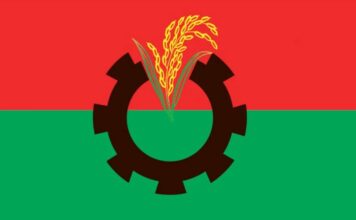Prime Minister Sheikh Hasina has approved the Policy-2018 regarding establishment, recognition, management, manpower structure and salary allowances/grants of Independent Ibtedayi Madrasas. The Prime Minister approved the policy on September 20. Earlier on September 13, a summary of the policy was sent to the Prime Minister's Office.
The first to fifth grade of madrasa education is known as the Ibtedayi level. Madrasahs which have Dakhil, Alim, Fazil, etc. levels attached to the first to fifth grade are called Ibtedayi Madrasas and those madrasas that teach only grades I to V are called independent Ibtedayi Madrasahs.
Secretary General of Bangladesh Independent Ibtedayi Madrasa Teachers' Association Kazi Mokhleshur Rahman thanked Prime Minister Sheikh Hasina for approving the manpower structure and salary policy. He said on Monday, 'Hopefully the government will publish the policy in gazette form very soon.'
According to the report of Bangladesh Bureau of Education Information and Statistics, there are 3 thousand 433 independent Ibtedayi Madrasahs in the country. 15 thousand 243 teachers are working in these institutions. The number of students in the institutions is more than 5 lakhs.
Subjects like Bengali, English, Mathematics, Bangladesh Studies, ICT have been made compulsory at the Ibtedayi level in coordination with other streams of education according to the Education Policy 2010. At the same time religious education subjects are taught in institutions.
It is learned that the teachers of the affiliated Ibtedayi Madrasas under MPO are getting salary and allowances at the fixed rate and the recruitment is continuing. The head teachers of these madrasas are getting 10 thousand 388 taka per month and the teachers are getting 9 thousand 988 taka per month.
On the other hand, only 4,529 out of 15,243 teachers of independent Ibtedayi madrasas are receiving government educational assistance grants. In 2017, this allowance has been fixed at Tk 2,500 for head teachers of independent Ibtedayi Madrasas and Tk 2,300 for junior teachers and students.
On October 15, 1983, the Bangladesh Madrasa Education Board issued a policy for sanctioning individual Ibtedayi Madrasas. Since then some aspects of the policy have been updated by issuing orders from time to time. But in the absence of self-contained policies, the process of teacher recruitment has been stalled for a long time in coordination with filling up of vacancies, grants from new institutes and new curriculum.
A committee convened by the Additional Secretary (Madrasa) of the Technical and Madrasa Education Department of the Ministry of Education was formed to frame the policies of individual Ibtedayi Madrasas in view of the actual needs and the demands of the Bangladesh Madrasa Teachers Association. The committee formulated the draft policy. The Education Minister approved it. When the policy is sent to the finance department of the finance ministry for approval, the policy is asked to read the proposal again after receiving the policy approval of the highest level of the government. When the policy was sent to the Prime Minister's office for policy approval at the highest level of the government, the Prime Minister approved it on September 20.
In front of the National Press Club at 11 am on May 30, the teachers formed a human chain under the banner of the Bangladesh Independent Ibtedayi Madrasasashikshak Samiti demanding officialization. After the benchmarking, a memorandum was given to the Prime Minister, Minister of Education, Minister of State for Education and Minister of Finance demanding nationalization. Earlier, the teachers of Ibtedayi Madrasa held a sit-in strike in front of the National Press Club from January 1 to January 8 under the banner of Bangladesh Independent Ibtedayi Madrasa Teachers Association. Later, from January 9, he started a continuous hunger strike. After 8 consecutive days, Madrasa and Technical Department Secretary Md. Alamgir broke the hunger strike of the teachers on January 16 with an assurance on behalf of the government.










